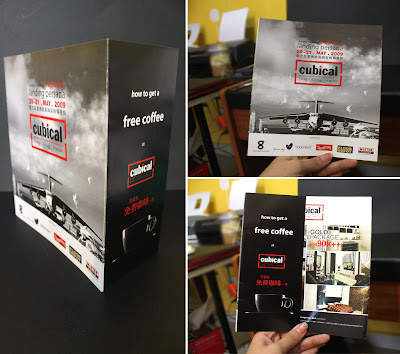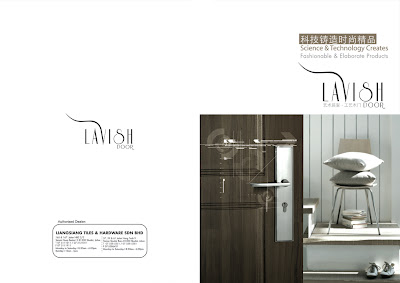
How to create a great business name?
Your company name should have a common thread that leads to the core of the business. When this isn't taken into consideration often mistakes are made. The same marketing energy that you use to develop your business name needs to flow throughout all integral parts of your business.
Your business name means everything when it comes to marketing your business, it could make or break your business, so do not take this part of planning lightly. A business name automatically contains a marketing element; your job is to choose a name that will help your marketing efforts. It's not as difficult as it sounds, but you do want to spend some time doing it. I've listed some questions below that will get your creative juices flowing and jumpstart your thinking, so that you can begin developing ideas for your business name.
* Write down a description of your target audience.
* What problems does your business help them solve?
* Make a list of words and phrases that appeal to them.
* List three to five benefits that you offer to your customers.
* List out the names of 4 of your competitors.
* Make a list of characteristics that differentiate you from the competition.
Now take these answers and formulate a list of 5 to 7 names. Once you've chosen a name it's time to put it to the test. Visualize your target audience and ask yourself the following questions:
* Can the proposed name be pronounced easily?
* Does it read quickly and clearly?
* Can you say it and others understand it, without having to spell it?
* Is it spelled as it sounds?
* Is it short? Experts recommend that a business name have eleven or less letters and four syllables maximum.
* Does it contain negative internal words?
* Is it unique and sensory? These two traits make words memorable.
* Does it spark interest? Is there a story behind it?
* Does it represent who you are? Is it authentic?
* Does it express or imply a desirable message?
* Can your employees say it proudly?
How did your proposed business name do? Is it a keeper or is it time to go back to the drawing board? Be honest with yourself, in the long run you will be glad you did.
Having a great name is a powerful force when it comes to your marketing campaigns. Your name differentiates you from competitors, makes an emotional connection with your audience, and helps to build a strong brand that your customers recognize and trust. (about.com)
Your business name means everything when it comes to marketing your business, it could make or break your business, so do not take this part of planning lightly. A business name automatically contains a marketing element; your job is to choose a name that will help your marketing efforts. It's not as difficult as it sounds, but you do want to spend some time doing it. I've listed some questions below that will get your creative juices flowing and jumpstart your thinking, so that you can begin developing ideas for your business name.
* Write down a description of your target audience.
* What problems does your business help them solve?
* Make a list of words and phrases that appeal to them.
* List three to five benefits that you offer to your customers.
* List out the names of 4 of your competitors.
* Make a list of characteristics that differentiate you from the competition.
Now take these answers and formulate a list of 5 to 7 names. Once you've chosen a name it's time to put it to the test. Visualize your target audience and ask yourself the following questions:
* Can the proposed name be pronounced easily?
* Does it read quickly and clearly?
* Can you say it and others understand it, without having to spell it?
* Is it spelled as it sounds?
* Is it short? Experts recommend that a business name have eleven or less letters and four syllables maximum.
* Does it contain negative internal words?
* Is it unique and sensory? These two traits make words memorable.
* Does it spark interest? Is there a story behind it?
* Does it represent who you are? Is it authentic?
* Does it express or imply a desirable message?
* Can your employees say it proudly?
How did your proposed business name do? Is it a keeper or is it time to go back to the drawing board? Be honest with yourself, in the long run you will be glad you did.
Having a great name is a powerful force when it comes to your marketing campaigns. Your name differentiates you from competitors, makes an emotional connection with your audience, and helps to build a strong brand that your customers recognize and trust. (about.com)
How to choose a great business name?
1) A winning business name has to be memorable – but easy to spell.
Obviously, your potential customers and clients need to be able to remember your business name. But they also need to be able to find it easily if they’re looking for it in a phone book, directory or online. So choosing a business name such as “Crychalwellyn” is a bad idea. Unique is good but difficult spellings are a bad idea.
2) A winning business name needs a visual element.
What popped into your head when you read “Crychalwellyn”? Anything? Most people don’t visualize anything when they read this business name that I invented. But generally we are hard-wired to “see” images when we read or hear language, and incorporating a visual element into your business name can be a powerful aid to customers’ memory (and a powerful advertising tool).
So you want your business name to have a strong visual element to it. The catch is that...
3) A winning business name has to have positive connotation.
Many words have both denotation (literal meaning) and connotation (emotional meaning). A word’s connotation can be positive, neutral or negative, depending on the emotional associations that people generally make. The classic example is the difference between “Mom” (which has a very positive connotation) and “Mother” (which has a neutral connotation). Now you know why they called them “Dad’s” cookies, rather than “Father’s”!
What it means to you is that when you create a business name, you need to choose words that have the positive connotations that you want people to associate with your business – and make sure these connotations are suitable for your business.
If you are starting a trucking business, for instance, you don’t want it to have a weak sounding or negative name, such as “Willow Twig Trucking” or “Kitten Transport”. You want a business name that conveys strength and reliability. A choice such as “Stone Creek Trucking” would be much better. Notice how all these names have a strong visual element.
4) A winning business name needs to include information about what your business does.
Chances are good that your new business is not going to become an international brand. It certainly isn’t instantly going to become as well known as Nike. So you need to be sure that your new business name at least gives your potential customers or clients some clues about what you actually do. That’s why you see so many landscaping businesses that have the word “landscaping” in their name, and hair styling businesses that include words such as “salon” or even “hair designs” in their names.
Including information about what your business does in your business name also makes it easier for potential customers and/or clients to find your business in phone books and directories (both off and online).
5) A winning business name has to be fairly short.
Once again this is vital because you want customers and clients to be able to remember your business’s name (and be able to tell other people what it is)! But it’s also important for promotional purposes. You want a business name, for example, that will fit well on a business card, look good displayed on a sign or in an ad, and perhaps even a business name that will serve well as a domain name and show up well in search if you have an online business. So keep it as short as possible.
And a last tip: think about colours when you’re choosing a business name. Colours will be an important component of your business logo and other business promotion materials and your business web site, and colours have strong emotional associations, too. Red, for instance, is an aggressive colour; its fiery elements are associated with speed, excitement and passion while green is a calming colour associated with growth, renewal and nature. For more information on colours and their meanings see Color Meanings and Colors That Go Together by Jacci Howard Bear.
You’ll want to create at least two winning business names, and three is even better, because once you’ve chosen a business name, the next step is to register it and your first choice may already be taken.
Do you now have a winning business name that meets the requirements of all of the above five rules? Good! Hopefully you’ll be living with the name for your new business for a long time – and it will continue to attract new business. (about.com)
Obviously, your potential customers and clients need to be able to remember your business name. But they also need to be able to find it easily if they’re looking for it in a phone book, directory or online. So choosing a business name such as “Crychalwellyn” is a bad idea. Unique is good but difficult spellings are a bad idea.
2) A winning business name needs a visual element.
What popped into your head when you read “Crychalwellyn”? Anything? Most people don’t visualize anything when they read this business name that I invented. But generally we are hard-wired to “see” images when we read or hear language, and incorporating a visual element into your business name can be a powerful aid to customers’ memory (and a powerful advertising tool).
So you want your business name to have a strong visual element to it. The catch is that...
3) A winning business name has to have positive connotation.
Many words have both denotation (literal meaning) and connotation (emotional meaning). A word’s connotation can be positive, neutral or negative, depending on the emotional associations that people generally make. The classic example is the difference between “Mom” (which has a very positive connotation) and “Mother” (which has a neutral connotation). Now you know why they called them “Dad’s” cookies, rather than “Father’s”!
What it means to you is that when you create a business name, you need to choose words that have the positive connotations that you want people to associate with your business – and make sure these connotations are suitable for your business.
If you are starting a trucking business, for instance, you don’t want it to have a weak sounding or negative name, such as “Willow Twig Trucking” or “Kitten Transport”. You want a business name that conveys strength and reliability. A choice such as “Stone Creek Trucking” would be much better. Notice how all these names have a strong visual element.
4) A winning business name needs to include information about what your business does.
Chances are good that your new business is not going to become an international brand. It certainly isn’t instantly going to become as well known as Nike. So you need to be sure that your new business name at least gives your potential customers or clients some clues about what you actually do. That’s why you see so many landscaping businesses that have the word “landscaping” in their name, and hair styling businesses that include words such as “salon” or even “hair designs” in their names.
Including information about what your business does in your business name also makes it easier for potential customers and/or clients to find your business in phone books and directories (both off and online).
5) A winning business name has to be fairly short.
Once again this is vital because you want customers and clients to be able to remember your business’s name (and be able to tell other people what it is)! But it’s also important for promotional purposes. You want a business name, for example, that will fit well on a business card, look good displayed on a sign or in an ad, and perhaps even a business name that will serve well as a domain name and show up well in search if you have an online business. So keep it as short as possible.
And a last tip: think about colours when you’re choosing a business name. Colours will be an important component of your business logo and other business promotion materials and your business web site, and colours have strong emotional associations, too. Red, for instance, is an aggressive colour; its fiery elements are associated with speed, excitement and passion while green is a calming colour associated with growth, renewal and nature. For more information on colours and their meanings see Color Meanings and Colors That Go Together by Jacci Howard Bear.
You’ll want to create at least two winning business names, and three is even better, because once you’ve chosen a business name, the next step is to register it and your first choice may already be taken.
Do you now have a winning business name that meets the requirements of all of the above five rules? Good! Hopefully you’ll be living with the name for your new business for a long time – and it will continue to attract new business. (about.com)
Subscribe to:
Posts (Atom)






























